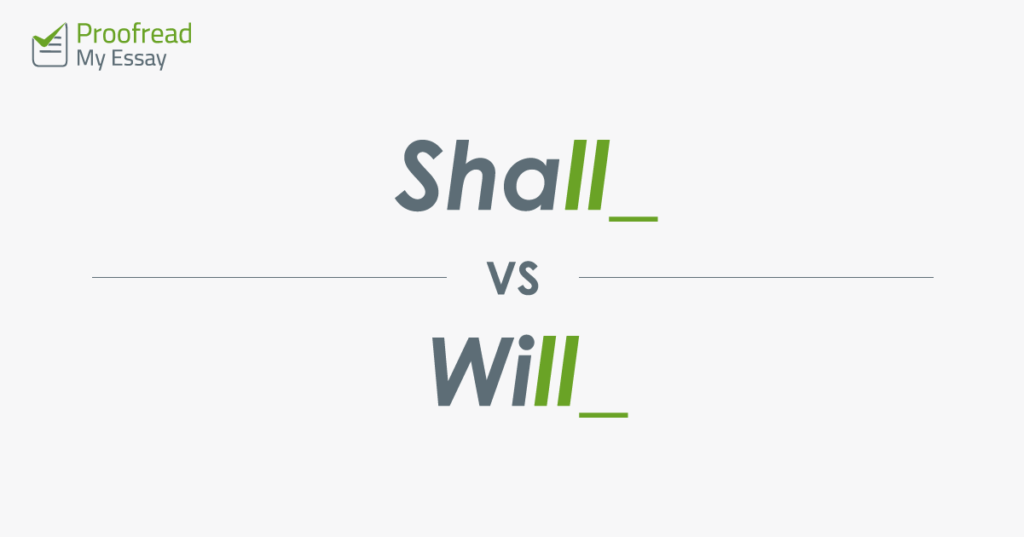Ever wondered about the difference between ‘shall’ and ‘will’? They’re both used to discuss potential future events, after all.
The answer to this grammatical question is complicated, as the usage of these terms has shifted. Nevertheless, our explanation should make things clearer.
Shall (First Person)
Traditionally, ‘shall’ is used with first-person pronouns (i.e. I and we). So if you were talking about something you planned to do the next day, you might say:
I shall finish my coursework tomorrow morning.
You can also use ‘shall’ to frame a suggestion or question:
Shall I wake you up early so you can meet the deadline?
In both cases, however, ‘shall’ can sound a little old-fashioned these days.

Will (Second and Third Person)
The second- and third-person equivalent is ‘will’. For example, if talking about what someone else might do in the future, we could say:
He will regret leaving his coursework until the last minute.
Likewise, if asking a question about the future, we might say:
Will you have time to get your work done before the deadline?
These may sound more familiar than sentences that use ‘shall’, because ‘will’ is now used in all contexts, regardless of grammatical person.
Find this useful?
Subscribe to our newsletter and get writing tips from our editors straight to your inbox.
Emphatic Reversals
Strangely, the traditional uses of ‘shall’ and ‘will’ are reversed when making an emphatic point (i.e. stressing something as important).
The most famous example of this comes from Cinderella, where the fairy godmother tells our wannabe princess:
You shall go to the ball!
Here, ‘shall’ is used with the second-person ‘you’ because the fairy godmother is being emphatic. The same is true when ‘will’ is used with the first person:
I will not tolerate fairy godmothers interfering with my party plans!
Since ‘will’ is now commonly used with first-person pronouns, though, the distinction between emphatic uses of ‘shall’ and ‘will’ is rare in modern writing.

Will or Shall?
Despite the traditional differences between these terms, ‘will’ is now used with all pronoun types. As such, the only time you’re likely to see ‘shall’ is in formal or old-fashioned writing.
On a day-to-day basis, then, you can use ‘will’ for any occasion of talking about the future. But in formal writing, you may still want to make a distinction. Remember:
Shall = First person (formal) and second person (emphatic)
Will = Second and third person (formal) and first person (emphatic)



